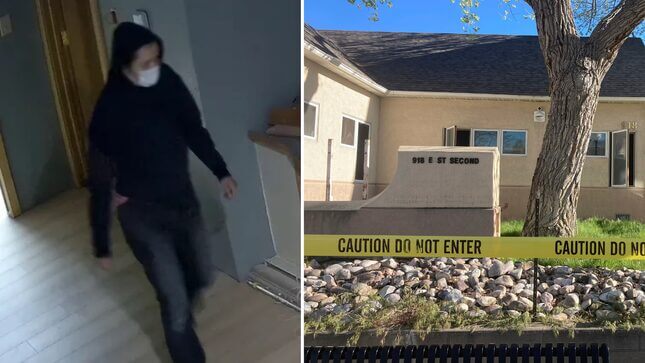Suspect Arrested for Setting Fire to Wyoming’s Last Abortion Clinic Is 22-Year-Old Woman
Lorna Roxanne Green was arrested nearly a year after the clinic was set on fire and as the state faces legal uncertainty around abortion.
AbortionPolitics

A suspect was arrested on Tuesday for allegedly burning down what would have been Wyoming’s only full-service abortion clinic last May, the Associated Press reported on Wednesday. The suspect is a 22-year-old woman named Lorna Roxanne Green—demographically a bit of a deviation from those who usually commit crimes against abortion providers and services.
In a statement this week, Wyoming U.S. Attorney Nicholas Vassallo confirmed that Green had been detained by local police as well as agents from the FBI and the U.S. Bureau of Alcohol, Tobacco, Firearms and Explosives. Security footage shared by police appears to show Green in a hoodie and mask carrying a can of fuel into the building, called Wellspring Health Access, shortly before the fire. A witness also described seeing Green fleeing the scene. No one was on the premises when Green allegedly started the fire and there were no deaths or injuries. The clinic was under construction and hadn’t yet opened at the time.
-

-

-

-

-

-

-

-

-

-

-

-

-

-

-

-

-

-

-

-

-

-

-

-

-

-

-

-

-

-

-

-

-

-

-

-

-

-

-

-








































